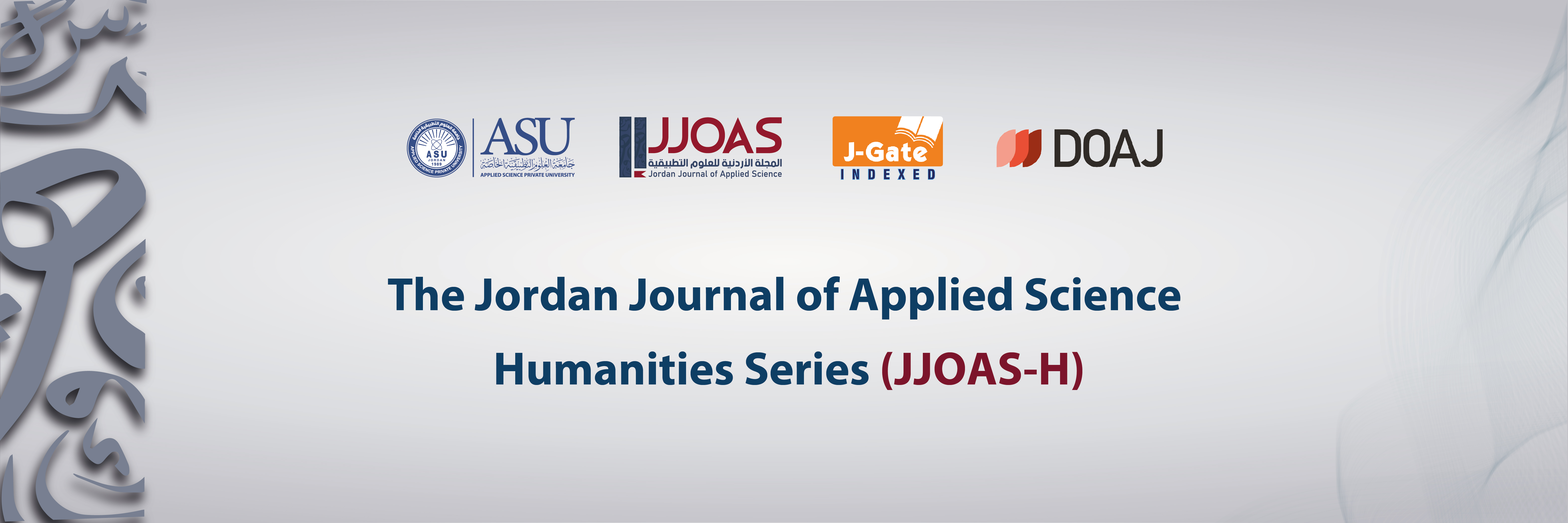
DOI
https://doi.org/10.35192/jjoas-h.v32i2.341
Abstract
This study examined the effectiveness of the semiotics strategy in improving listening comprehension skills among tenth-grade students in Jordan. The researchers developed an objective test to measure student performance levels, using a semi-experimental design consisting of 30 items. The sample included 55 students from Mafraq First Secondary School for Boys, selected using a convenience sampling method during the first semester of the 2020-2021 school year. The students were divided into two sections: one was randomly selected to serve as the experimental group, totaling 28 male students taught using the semiotics strategy, while the other served as the control group, consisting of 27 male students taught using a traditional teaching strategy. Validity and reliability were verified through test-retest, Cronbach's Alpha Coefficient, and evaluator agreement. Data were analyzed using means, standard deviations, T-tests, One-Way ANOVA, MANCOVA, and Eta squared to determine the effect size of the semiotics strategy. Additionally, lesson notes for listening classes were prepared according to the semiotics strategy for two lessons: "Palm Tree" and "Love with Forgiveness." The results of the study indicated statistically significant differences at (α = 0.05) in the overall level of listening comprehension skills and its individual domains (Literal, Inferential, Critical), in favor of the experimental group.
Recommended Citation
Al-Khaza'leh, Firas; Maqableh, Naser; and Eyadat, Yousef
(2022)
"The Effectiveness of the Semiotics Strategy in Improving Listening Comprehension Skills among Tenth Grade Students,"
Jordan Journal of Applied Science-Humanities Series: Vol. 32:
Iss.
2, Article 2.
DOI: https://doi.org/10.35192/jjoas-h.v32i2.341
Available at:
https://digitalcommons.aaru.edu.jo/jjoas-h/vol32/iss2/2
Included in
© 2023 by the author(s). This is an open-access article distributed under the terms of the CC BY 4.0 Attribution license.

